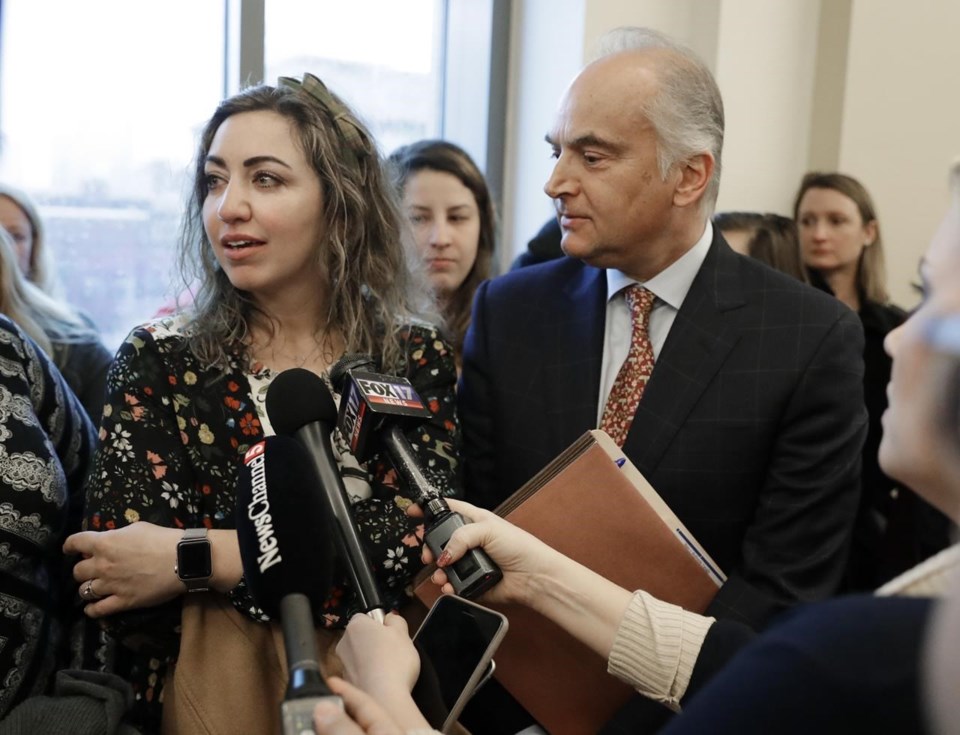NASHVILLE, Tenn. (AP) — A former Tennessee nurse who was convicted of homicide last year after a medication error killed a patient argued Tuesday that the state Board of Nursing acted improperly when it revoked her license.
Nurses around the country rallied for RaDonda Vaught during her criminal trial, saying the risk of going to prison for a mistake made nursing intolerable. Vaught was ultimately sentenced to three years of probation.
At the Tuesday hearing at Chancery Court in Nashville, her attorney pointed out that the Department of Health initially reviewed Vaught's errors and concluded the case "did not merit further action" in a 2018 letter. That should have been the end of the review, attorney Peter Strianse argued. Instead, about a year later, the department reversed itself, charging Vaught with unprofessional conduct and eventually revoking her license.
Strianse implied that outside pressure, including the fact that the Nashville district attorney decided to prosecute Vaught, led to the reversal, rather than any new evidence against her. The second review was a kind of improper double jeopardy, he argued.
Whether the second review was improper is a legal question that turns on several factors, including whether the initial review was a “quasi-judicial proceeding.” Strianse argued that it was. Assistant Attorney General Trent Meriwether, representing the state, argued that it was not.
Meriwether also argued that the second review was proper because it was based on a new complaint.
“Nothing stops the Department of Health from choosing to go after the unprofessional conduct on a new complaint at a later date,” he said.
Strianse additionally argued that the Board of Nursing hearing where Vaught's license was revoked was unfair. That's because a Vanderbilt University Medical Center doctor who testified to the board that there were no systemic problems with medication dispensing at the time of the fatal accident later wrote a letter to the judge overseeing the criminal trial that seemed to contradict the earlier testimony.
Vaught injected the paralyzing drug vecuronium into 75-year-old Charlene Murphey instead of the sedative Versed on Dec. 26, 2017. Vaught freely admitted to making several errors with the medication that day, but her defense attorney argued that she was not acting outside of the norm and that systemic problems at Vanderbilt were at least partly to blame for the error.
A jury last year found Vaught not guilty of reckless homicide. Instead, they found her guilty of the lesser charge of criminally negligent homicide. She was also found guilty of gross neglect of an impaired adult.
After the Tuesday hearing, Vaught said she would never go back to nursing, even if her license is reinstated, but that she still cares about the profession and has good friends who are nurses.
Vaught said it is concerning that the Health Department and Board of Nursing, which are supposed to be protecting the public, could go “so far from one decision to another" in her case.
They went from "'Not only is this not an issue, but we’re going to go so far as to keep it off of your licensure record’ to the complete opposite conclusion that ‘You are a threat to public safety, and your license is going to be revoked,’” Vaught said.
Travis Loller, The Associated Press



